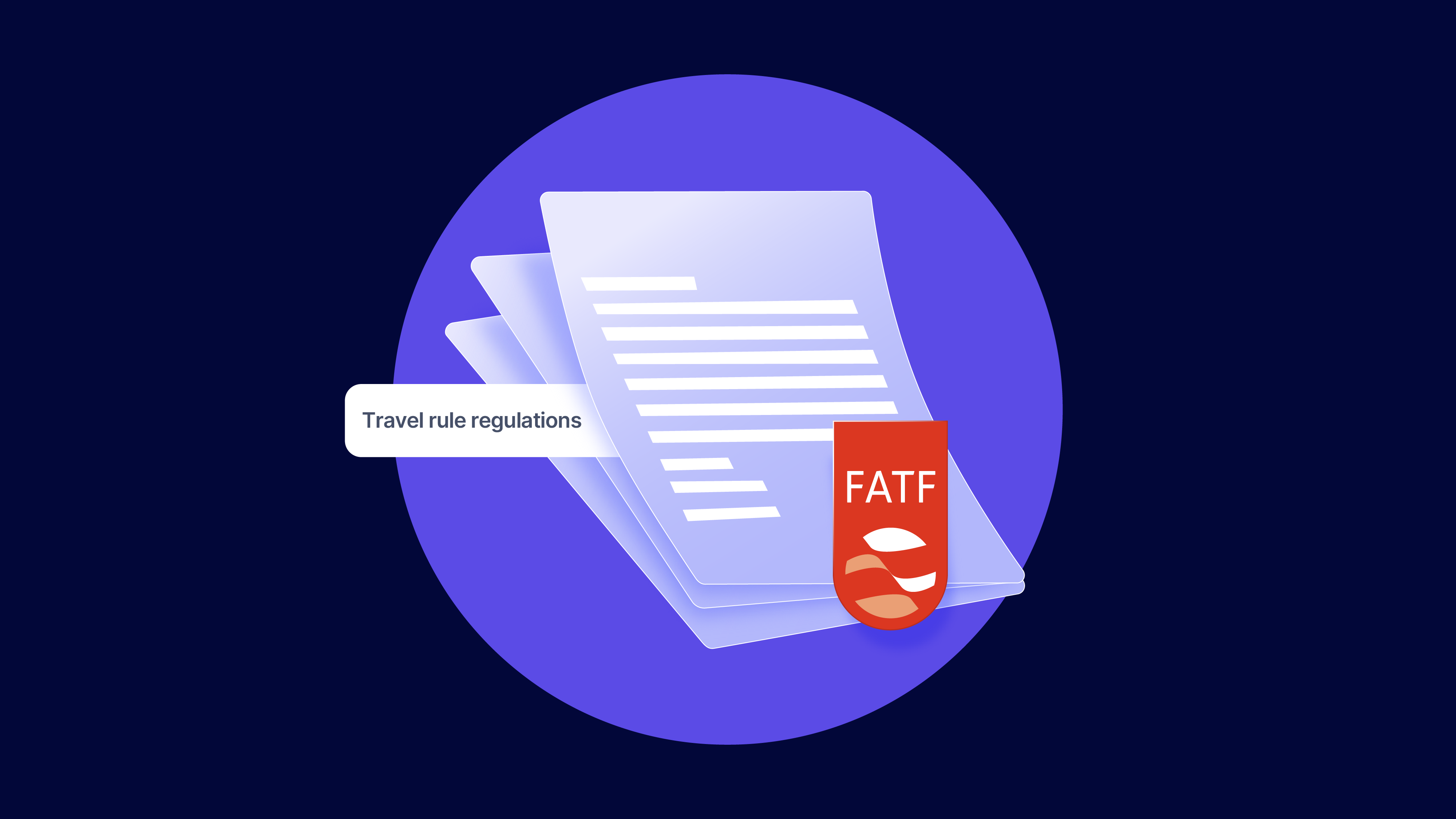
The Travel Rule (TFR) at CoinGate, Explained

Regulatory changes are set to reshape the crypto industry in 2025, and CoinGate is actively preparing for these changes to ensure compliance and smooth user experience.
Among these regulations, the Travel Rule and the Transfer of Funds Regulation (TFR) stand out as pivotal guidelines aimed at combating money laundering and terrorist financing.
Starting in 2025, all Virtual Asset Service Providers (VASPs), including CoinGate, will need to adhere to these requirements.
Here, we’ll explain the practical implications of the Travel Rule and how it will affect CoinGate’s services.
How does the Travel Rule work?
The Travel Rule impacts all CoinGate services involving cryptocurrency transactions. These services can be categorized as follows:
- First-party transactions: When you deposit cryptocurrency into your CoinGate account or withdraw cryptocurrency to an external wallet.
- Third-party transactions: When your customers pay with cryptocurrency or when you send cryptocurrency payouts to your clients and partners.
For each cryptocurrency transaction, we’ll need to record a few bits of information about the sender and recipient of the transaction:
- Sender’s Information: Full name, account or wallet address, and transaction details (e.g., amount and timestamp).
- Sender’s Information (if sending as a business): Email, company name, company code, and company’s registration country.
- Recipient’s Information: Full name, account or wallet address, and additional transaction details.
Regardless of its type, when a crypto transaction happens between two regulated providers in jurisdictions where the Travel Rule applies (for example, between CoinGate and Kraken), we’ll need to exchange data to ensure that both sides know who the sender and the recipient are.
Conversely, if the transaction involves a self-hosted wallet, we’ll need to make sure we know who owns that self-hosted wallet.
What does the Travel Rule mean for Crypto Shoppers?
We’re keeping your payment experience practically the same. The only thing that’s changing is that, besides providing your email address, we’ll now also ask for a few more bits of your personal information – like you’d typically see with conventional payment methods (such as card payments).
For individuals shopping with crypto, we’ll collect your name, country of residence and date of birth.
For businesses paying merchants for B2B services, we’ll ask for your company name, incorporation country, and the name of the business representative making the payment.
Sometimes, if your payment exceeds certain thresholds or conditions, we’ll ask you to provide some additional information on the payment page or by email.
What does the Travel Rule mean for our Business clients?
First-party transactions
When you make crypto deposits, we’ll need to make sure that you own the crypto wallet from which the transaction was received. The same applies when you make crypto withdrawals to an external wallet.
If you’re making a transaction to or from a regulated party that complies with the Travel Rule, there won’t be anything you need to do.
If you’re making a transaction using a self-hosted wallet, we’ll ask you to provide evidence of owning the external crypto wallet in your CoinGate account dashboard. This will typically be a one-time requirement, so long as you’re depositing and/or withdrawing crypto using the same external address.
Third-party transactions
Good news, not much is changing here!
If you’re using our crypto payouts feature – we’ve already designed it having Travel Rule in mind, so all the required personal details are captured when you’re creating your transfer recipients.
Now, if you’re using CoinGate to collect crypto payments from your customers, we’ll handle all Travel Rule requirements on our invoice page. So, there’s nothing you need to do either, other than some optional steps!
The payment experience of your customers will remain largely the same, but we’ll need to collect their details – as covered above – to make sure we know who is making the payment.
There are a couple of things you could do to ease the experience for your customers further:
- If you’re collecting your customer’s billing or shipping details at your checkout, you can pass them to us via API (see Shopper object in the API reference). This way, your customers will only need to confirm these details on the invoice.
- For your privacy-conscious customers, a little heads up might also help, so you can add a disclaimer at your checkout to ensure they’re aware of the changes before they proceed to payment.
What’s next?
When designing the changes to comply with the Travel Rule requirements at CoinGate, we’ve focused on great user experience and minimising any friction. But, we’re conscious there may be a little turbulence at the start of 2025, as the Travel Rule presents a pretty big shift for the crypto space affecting each and every crypto platform providing services in Europe!
Not only that, there’s also the MiCA regulation and DORA that’s taking effect at the same time – both of which we’ve already covered on our blog.
As with most new regulatory changes, many things will clear up as companies iterate on and improve their initial implementations of the Travel Rule requirements. Ultimately, we see these regulations as enablers that will fuel further growth of the crypto ecosystem, help increase trust in companies providing crypto services, and drive new innovative solutions.
We’re keen believers in crypto commerce and remain focused on improving customer experience as one of our primary goals. Watch this space, as we’ll be releasing further improvements across the platform to make the experience for both our Business clients and Crypto Shoppers a breeze.
Accept crypto with CoinGate
Accept crypto with confidence using everything you need in one platform.

